Unity in Diversity? - Meet the speakers
The conference
From April 15th to 16th, a meeting of high-ranking professionals from renowned European cultural and heritage institutions, policymakers from the EU member states and EU institutions, and the European cultural sector will take place in Antwerp.
The aim of the conference is to delve deeper into the complex connections between the concepts of culture, heritage, and identity within Europe. By fostering an open and stimulating debate, together with the Flanders Heritage Agency, we aim to discuss the versatility of these concepts and map out the connections between them. Central to these discussions is the question of how culture and heritage contribute to the formation and expression of identity, and which challenges and opportunities this poses.
The speakers
Moderator: Annelies Van Herck
Plenary keynotes and conversations - The European cultural space: What, when, where and if?
Plenary keynote and debate - Cultural spaces and identities in Europe: unity in diversity?
Breakout: The role of culture and regions in the multi-layered process of identification in Europe
Breakout: Culture and heritage as cornerstones for European identity building
Breakout: Public spaces and cultural memory
Breakout: Cultural resilience in conflict: impact, destruction and recovery
Breakout: Media, cultural narratives and a common identity
Breakout: Cultural Diversity in Action: European Practices
Closing remarks: Culture and identity in Europe: a forward look
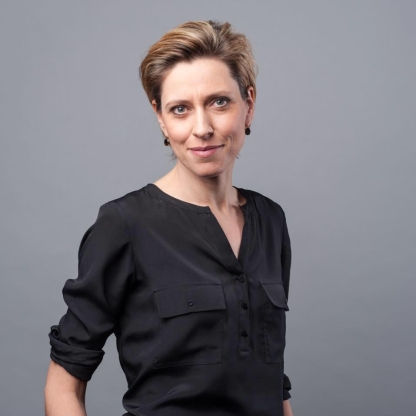
Annelies Van Herck
Annelies Van Herck is a seasoned journalist and presenter known for her insightful discussions on cultural and societal issues. With years of experience in the media industry, she brings a nuanced understanding of current affairs and a talent for fostering meaningful dialogue. Annelies has moderated numerous panels, debates, and conferences, guiding participants through complex topics with clarity and grace. Her expertise in navigating diverse perspectives ensures that discussions remain engaging, enlightening, and productive.
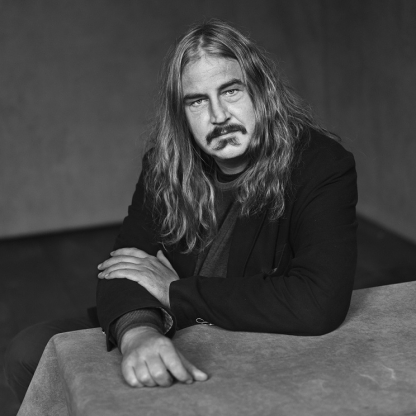
Ilja Leonard Pfeijffer
Speaker: Plenary keynotes and conversations - The European cultural space: What, when, where and if?
Ilja Leonard Pfeijffer is a Dutch poet, novelist, and classical philologist known for his works exploring European identity and cultural heritage. His most recent book ‘Alkibiades’ got recently published in 2024.
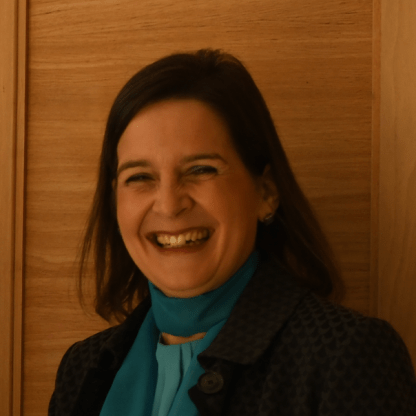
Constanze Itzel, Dr.
Speaker: Plenary keynotes and conversations - The European cultural space: What, when, where and if?
Speaker: Culture and heritage as cornerstones for European identity building
Dr. Constanze Itzel, Museum Director, House of European History
Constanze Itzel has built up the House of European History as adviser and curator since its beginnings in 2009, and has been leading the museum since 2017. Previous work experiences entail, among others, positions as teaching assistant (University of Heidelberg), curator (Badisches Landesmuseum Karlsruhe), and research and committee administrator (Committee on Culture and Education, European Parliament). Constanze holds a PhD for her thesis on the impact of the pre-reformatory image debate on fifteenth-century paintings (awarded the Ruprecht-Karls-Preis 2005).
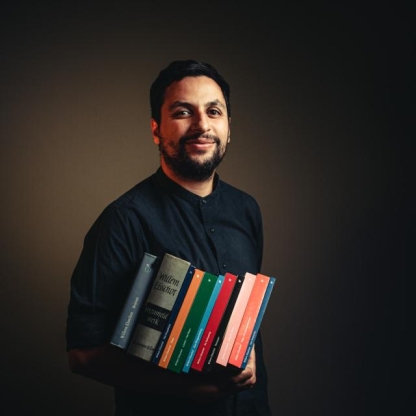
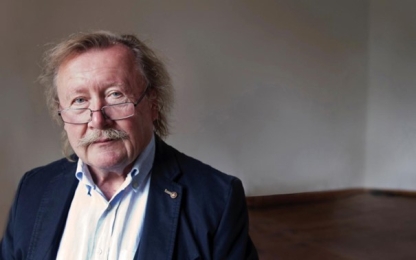
Peter Sloterdijk, Prof. Dr.
Keynote: Cultural spaces and identities in Europe: unity in diversity?
Peter Sloterdijk is a renowned German philosopher, cultural theorist, and author known for his insightful explorations of contemporary issues within the context of philosophy, culture, and society. He has authored numerous influential works, including "Critique of Cynical Reason", "Spheres Trilogy" and "You Must Change Your Life." Sloterdijk's interdisciplinary approach and thought-provoking analyses have earned him international acclaim as one of the leading voices in contemporary philosophy.
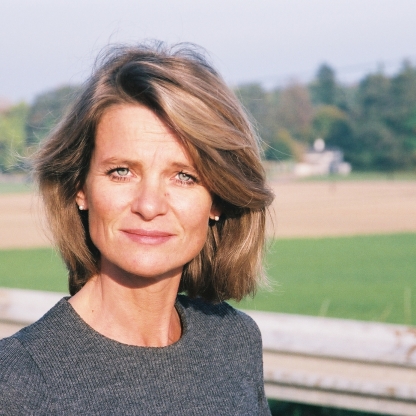
Caroline de Gruyter
Speaker: Plenary keynote and debate - Cultural spaces and identities in Europe: unity in diversity?
Caroline de Gruyter is a Europe correspondent and columnist for the Dutch newspaper NRC. Based in Brussels, she is also a columnist for Foreign Policy and EUobserver, and a member of the European Council on Foreign Relations.
Caroline has covered European politics for 25 years, both from the ‘bubble’ in Brussels and elsewhere in Europe. Her voice and expertise about Europe are well-known. She was previously based in the Gaza strip, Jerusalem, Brussels, Geneva, Vienna and Oslo. Her latest book is a best-selling comparison between the Habsburg Empire and the European Union. It has been translated into German, Swedish, French and Hungarian.
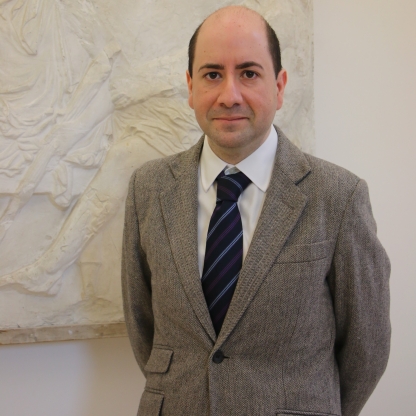
André P. DeBattista
Speaker: Cultural spaces and identities in Europe: unity in diversity?
André P. DeBattista is as academic, political scientist and political writer. He is an Assistant Lecturer at the Institute for European Studies at the University of Malta and a Research Associate at the Wilfried Martens Centre for European Studies, Brussels. He authored various books, studies and monographs including “The EU and the multifaceted challenges of European Identity” (WMCES, Brussels, 2022); and co-edited the two volumes on “The Different Faces of Politics in Literature and Music” and “The Different Faces of Politics in the Visual and Performative Arts” (Routledge, Oxford, 2023)
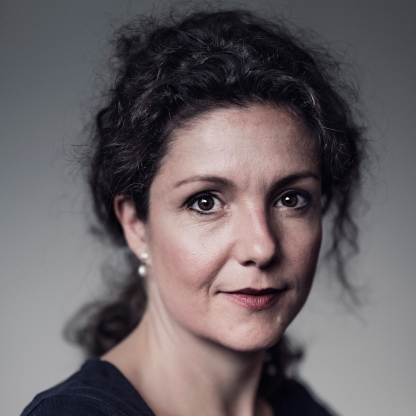
Tinneke Beeckman
Speaker: Cultural spaces and identities in Europe: unity in diversity?
Dr. Tinneke Beeckman (1976) studied moral philosophy at the VUB and the ULB. She was scientific researcher (FWO) for several years. Sinds 2012 she is a writer and public speaker. She published on Spinoza (‘Door Spinoza’s Lens’, for which she received the Liberales Prize) and Machiavelli (Machiavelli’s Daring – for which she received the Hypatia Prize). Her latest book, ‘Ken Jezelf’ (Know Yourself) explores how philosophy and literature can offer practical wisdom. She is a columnist for De Standaard.
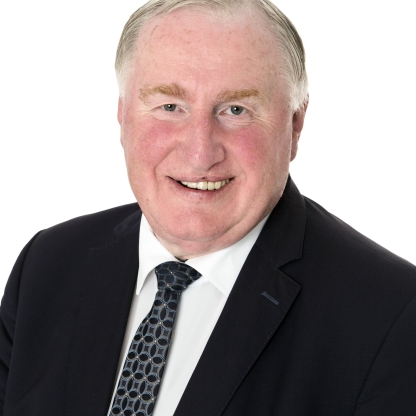
Karl-Heinz Lambertz
Speaker: The role of culture and regions in the multi-layered process of identification in Europe
After working as an assistant at the Faculty of Law of UCL (1976-1981) and as a consultant at the SRIW (1981-1990), the graduate attorney Karl-Heinz Lambertz was Minister from 1990 and Minister-President of the German-speaking Community of Belgium from 1999 to 2014. Between September 2014 and September 2016, he served as President of Parliament, which he did again from June 2019 to January 2023. In the meantime, he represented the German-speaking Community to the Belgian Senate. After 42 years of membership, Karl-Heinz Lambertz retired from the Parliament of the German-speaking Community of Belgium on 13.12.2024 at the age of 71.
From 2001 to the end of 2023, he was a member of the Committee of the Regions (CoR), where he acted as First Vice-President from 2015 to 2017. In July 2017, he was elected President of this institution. He held this office until February 2020. Karl-Heinz Lambertz has been a member of the Congress of Local and Regional Authorities of the Council of Europe (CLRAE) since 2000. From 2016 to 2021, he was also Vice-President of the Congress, remaining a member until June 13, 2024. From 2010 to 2017, he held the position of President of the Association of European Border Regions (AEBR). He has been back in this position since November 2020.
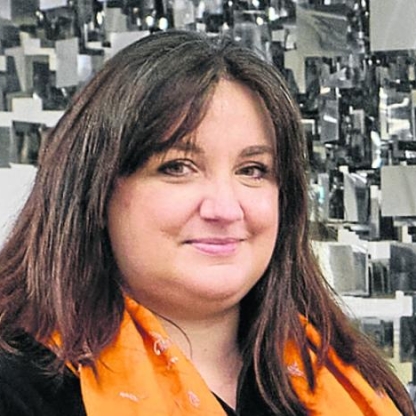
Clara Montero
Speaker: The role of culture and regions in the multi-layered process of identification in Europe
Clara Montero is an art historian and cultural manager.
She studied Art History, Psychology and Pedagogy at the University of Frankfurt, where she also worked as a tutor. She later worked in Zurich, in art galleries and in 2008 she returned to San Sebastian to join the Tabakalera project. She then worked as a freelance for various institutions.
In 2012 she was appointed director for the promotion of culture in the Basque Government, where she contributed to developing public policies in the field of cultural industries, and was a member of the boards of trustees and boards of directors of the main Basque cultural institutions, such as the San Sebastian Film Festival, the Quincena Musical, Filmoteca Vasca and Tabakalera.
She is currently the cultural director of Tabakalera, the International Centre for Contemporary Culture in San Sebastian.
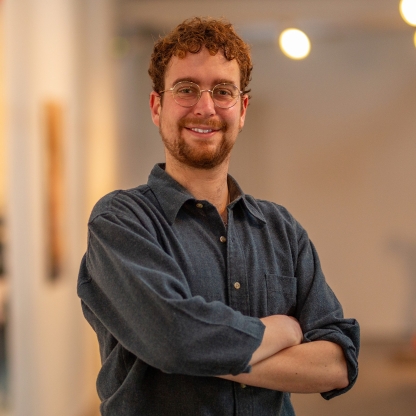
Jacob O’Sullivan
Speaker: The role of culture and regions in the multi-layered process of identification in Europe
Jacob O’Sullivan is Museum Development Manager – Collections & Interpretation for Museums Galleries Scotland; the national development body for Scotland’s 450+ museums. He is responsible for supporting Scotland’s museums in the management, care, and interpretation of collections, as well as support for Intangible Cultural Heritage (ICH). In this capacity, he represents Scotland’s museums on the ICH in Scotland Partnership, alongside Historic Environment Scotland, Creative Scotland, and Traditional Arts & Culture Scotland. Before joining MGS, Jacob worked in curatorial and visitor services roles at folk museums in Ireland, the Isle of Man, and the highlands of Scotland. He is currently based in Edinburgh.
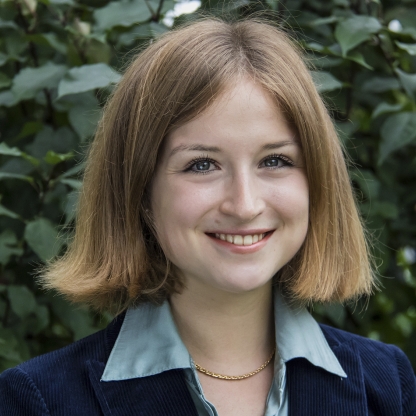
Gabrielle Bernoville
Speaker: Culture and heritage as cornerstones for European identity building
Gabrielle Bernoville graduated in European Affairs and Cultural Relations at the College of Europe and Sciences Po. She is currently a political assistant at the European Commission, in the Creative Europe Department, where she is responsible for Heritage and Performing Arts, including the European Heritage Label, European Heritage Days and European Heritage Awards. Her research and engagements focused to international cultural relations, the nexus between democracy and culture, and the Eastern Partnership countries. She has professional experience in Latin America (Alliance Française), United Kingdom (Atout-France), Poland and Slovakia (French Embassy - Cultural Officer).
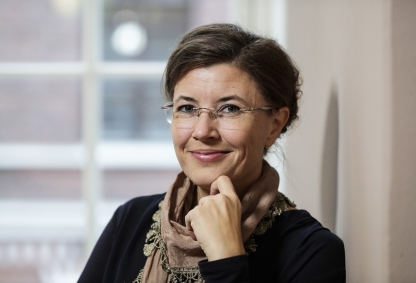
Tuuli Lähdesmäki
Speaker: Culture and heritage as cornerstones for European identity building
Tuuli Lähdesmäki is Associate Professor of Art History at the University of Jyväskylä, Finland. She has led research projects, funded by the European Research Council and the Academy of Finland, exploring EU cultural and heritage policy and politics, cultural memory, identity, and European narratives. Her recent books include a co-edited volume Heritage Diplomacy. Discourses, Imaginaries and Practices of Heritage and Power (Routledge, 2024) and co-authored monographs Europe from Below. Notions of Europe and the European among Participants of EU Cultural Initiatives (Brill, 2021) and Creating and Governing Cultural Heritage in the European Union: The European Heritage Label (Routledge, 2020).
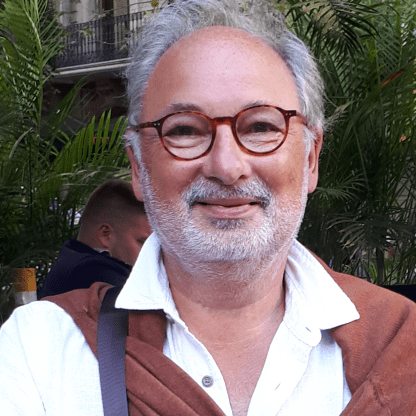
Piet Chielens
Speaker: Public spaces and cultural memory
Until his retirement in 2021, Piet Chielens was director of the In Flanders Fields Museum in Ypres, Belgium’s most important museum dedicated to WWI. He continues to be involved as a volunteer. He strives for a continuous renewal of the memory of the Great War focusing on how micro (personal, family and local) and macro history (that of cultures, nations and the world) can be connected.
Piet Chielens (°1956) studied economics and communication at the KU Leuven. After returning to his native village, he became the first co-ordinator and then director of the In Flanders Fields Museum in Ypres, Belgium, from 1996 to 2021. The museum based in Ypres’ destroyed and reconstructed medieval Cloth Hall is now the most important museum dedicated to the First World War in Belgium. Piet Chielens continues to return at IFFM one day a week as a volunteer. He was responsible for the museum's permanent exhibitions, as well as for a large number of temporary exhibitions until the most recent upgrade in 2021. From 1992 to 2007, he also was artistic director of the Passchendaele Peace Concerts. He strives for a continuous renewal of the memory of the Great War in Belgium and has a particular focus on how micro (personal, family and local) and macro history (that of cultures, nations and the world) can be connected.
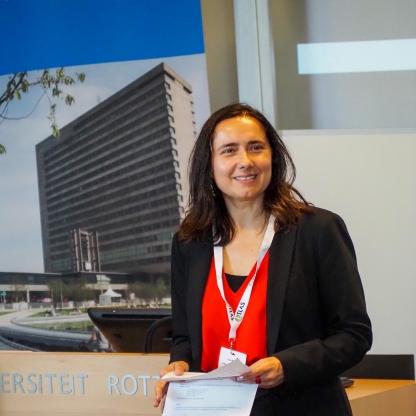
Lénia Marques
Speaker: Public spaces and cultural memory
Lénia Marques is Assistant Professor of Cultural Organizations and Management at the Erasmus university Rotterdam, Netherlands. Her research focuses on the development of the cultural and creative industries and their relationships with other fields, such as tourism and events. Her recent interests include cities and the development of cultural and creative policies, as well as living heritage in the context of mobilities.
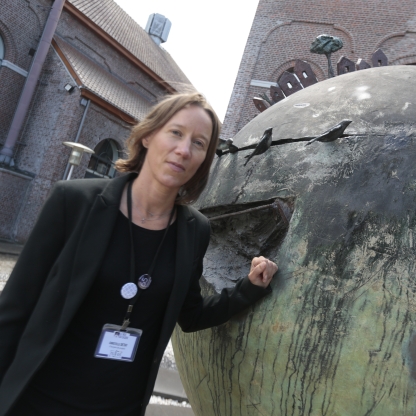
Christelle Dethy
Speaker: Public spaces and cultural memory
Christelle Dethy is a historian. She taught history and worked in a touristic office before she started at Le Bois du Cazier in 2003. She is the cultural projects and exhibitions coordinator and, since 2014, the manager of the Educational departement.
She has been working since 2007 to make Le Bois du Cazier a Site of Conscience. Not just on paper but also in the activities offered. Three contemporary issues are linked to the history of the site ; workers immigration, child labor, safety at job.
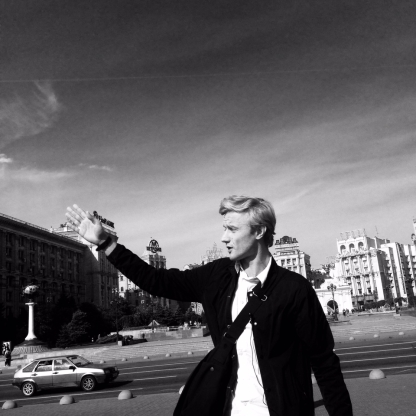
Vasyl Cherepanyn
Speaker: Cultural resilience in conflict: impact, destruction and recovery
Vasyl Cherepanyn (Ukraine) is Head of the Visual Culture Research Center (VCRC), an institution he co-founded in Kyiv in 2008 as a platform for collaboration among academic, artistic, and activist communities. VCRC is the organizer of the Kyiv Biennial and a founding member of the East Europe Biennial Alliance. Cherepanyn holds a PhD in philosophy and has lectured at several universities, both in Kyiv and other cities in Europe, and is a curator, writer, and editor.
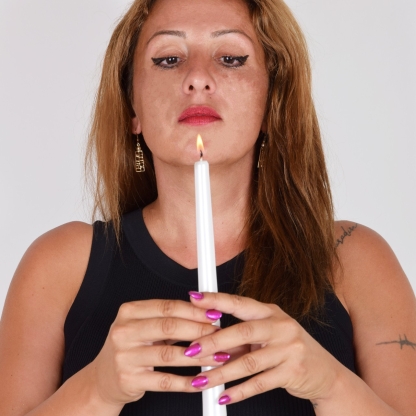
Ana Milosevic, Dr.
Speaker: Cultural resilience in conflict: impact, destruction and recovery
Dr Ana Milosevic is a Post-Doctoral Researcher at the Leuven Institute of Criminology (LINC) at the KU Leuven Faculty of Law. My research takes a bird's eye view on a wide variety of roles assigned to memorialisation processes. It zooms in on the post-terrorist memorialisation in Europe to critically examine its effectiveness for the victims, their families and survivors.
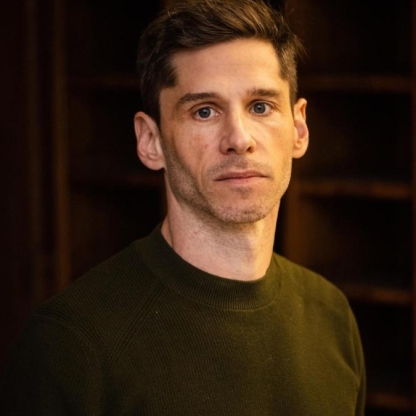
Jesse Fabré
Speaker: Media, cultural narratives and a common identity
Jesse started working for television production company De Mensen in 2002. In his capacity as producer, showrunner and editor and chief he has developed television shows for the the public broadcasting company as well as commercial channels.
During the last 10 years he has specialised in human interest, adventure and documentary programs with shows such as Tomtesterom, Wauters vs Waes, Reizen Waes and Kamp Waes receiving the highest ratings. Lip Sync Stories, a cross-over between fiction and non-fiction, was nominated for a Rose d’Or in 2018.
From 2020 until 2023 he was producer/showrunner of The Story Of Flanders.
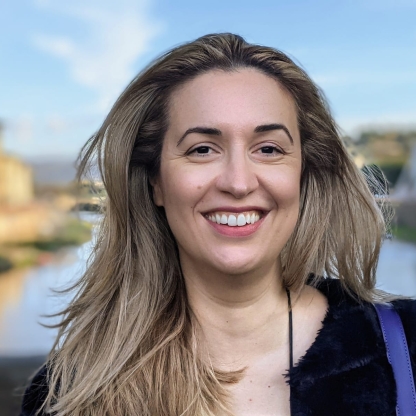
Tatjana Samopjan
Speaker: Media, cultural narratives and a common identity
Tatjana Samopjan is a sought after speaker known for her deep dives into art, craft and soul of storytelling. Her original and impactful lectures explore relationships between storytelling, science, technology, music, spirituality, social dynamics, philosophy, and real-life experience.
Tatjana works as a creative consultant specialising in development of TV series, films and documentaries. Her clients include European broadcasters, streamers, production companies, development programs and funding institutions.
Tatjana is based in Stockholm but her workplace is Europe. As a member of several European advisory boards she is involved in financing new projects. Her academic background is in languages and literature. Her explorations of contemplative traditions have informed and deepened her way of working with storytellers.
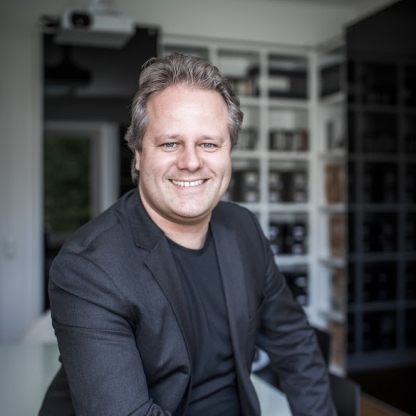
Matthias Röder
Speaker: Media, cultural narratives and a common identity
Matthias Röder spearheads the groundbreaking Beethoven X Project in Germany, which ventures into the realm of artificial intelligence (AI) and its application in music composition. As a visionary at the forefront of innovation, Röder collaborates with esteemed musicologists, AI technicians, and symphonic orchestras to realize the ambitious goal of bringing Beethoven's 10th Symphony to life using AI. Through this pioneering project, Röder explores the dynamic intersection of AI and creativity, pushing the boundaries of traditional music composition and paving the way for new artistic expressions.
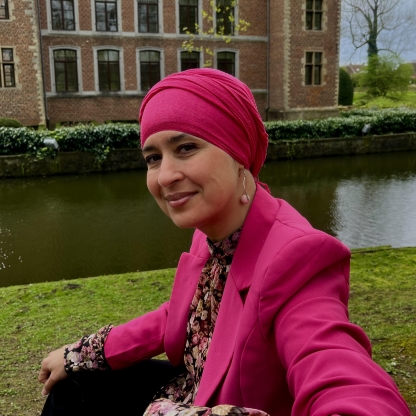
Naïma Lafrarchi
Speaker: Cultural Diversity in Action: European Practices
dra. Naïma Lafrarchi holds master degrees in educational sciences, social sciences and law. Her academic and fieldwork lay at the intersection of identity, diversity, culture, history and educational sciences. She wrote several (inter-)national publications and presented her work at (inter-)national academic and practice-oriented conferences. Currently, she is finalizing her interdisciplinary doctoral research on historical empathy. She developed, based on her two decades of formal and informal education experience, the 'Triple Helix Model' to actively "practice" history. The Triple Helix Model brings together three stakeholders (education, cultural and arts sector, and museum sector) through a broad Flemish network platform in order to engage young people in an active and innovative way with the past and history. The Flemish History Olympiad provides thus a broad and varied qualitative network for practicing both domain-specific and cross-domain competencies within an educational (classrooms) and cultural context. Additionally, this model pays particular attention to inclusion, digital literacy, key competencies (EU/Flemish), as well as the SDGs. During the presentation we outline the challenges and opportunties of the Triple Helix Method, and provide some good practice examples.
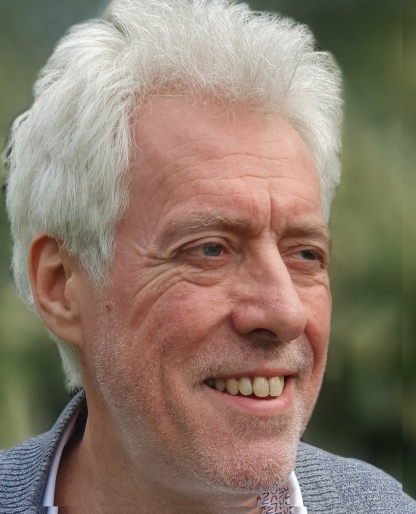
Guido Tilkin
Speaker: Cultural Diversity in Action: European Practices
Guido Tilkin, MA Geography and PG Social and Cultural Anthropology (KULeuven, BE), is a former European project manager and director of the Landcommanderij Alden Biesen, Belgium, an international culture and conference centre, based in a historic castle.
He also was artistic director of ‘Alden Biesen Storytelling Castle’, an international storytelling festival that grew to become the biggest festival in Europe, unique in the world in its multilingual approach. He has been the coordinator of a series of European projects under the Lifelong Learning, Creative Europe and Erasmus+ programmes and gained special expertise in e.g. applied storytelling, value-based heritage interpretation, heritage competence development and validation of non-formal learning.
Storytelling is our oldest art form and continues to engage our imagination, enrich our lives and strengthen our collective experience. It is a carrier of heritage, values and beliefs and provides individuals and communities with a sense of common history and belonging.
Besides being a performing art, storytelling can also act as an ‘applied art’: it has an enormous potential to offer to other social and cultural sectors as a didactic tool, a tool for communication, for civic and cultural participation, economic development, heritage interpretation, inclusion, and social wellbeing.
As FEST Chair, Guido Tilkin strives to promote and support the art of oral storytelling, to build capacity for storytellers in Europe and to further develop storytelling as a performing art and as a unique instrument for social change, to integrate it with other art forms and socio-cultural processes to enhance the role of art and culture for society.
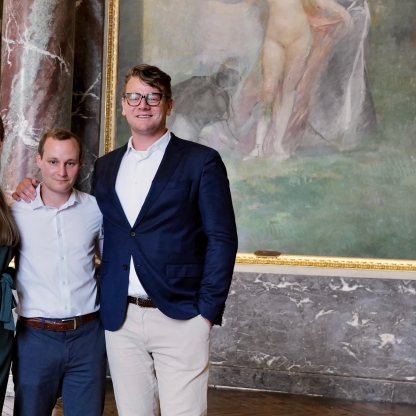
Matthew Coucke and Pieter Lembrechts
Speakers: Cultural Diversity in Action: European Practices
Pieter and Matthew have been working for the European Student Orchestra Festival (ESOF) since its foundation in 2012. 12 years and 7 festivals later, ESOF has brought together over 40 student ensembles, about 3000 musicians from all over Europe to perform for each other and 20.000 festival visitors.
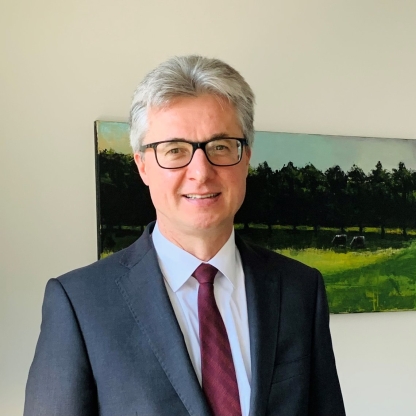
Georg Häusler
Speaker: Closing remarks: Culture and identity in Europe: a forward look
Georg Häusler has just been appointed as Director for Culture, Creativity and Sport in the European Commission (DG EAC). Prior to that, he was Director in another Commission department for seven years. He joined the Commission in 1999 and has had several senior posts including as Head of Cabinet of Commissioner Dacian Ciolos, from 2009 to 2014. Before he began his Commission career, he was Secretary General of an EU-wide NGO. He studied law (PhD in 1993). He is 54 years old and married, with one son.
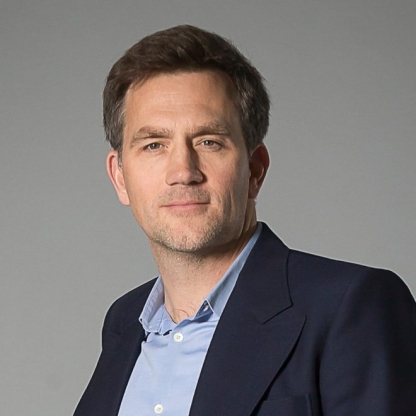
Bart Temmerman
Speaker: Closing remarks: Culture and identity in Europe: a forward look
In 2023 Bart Temmerman became the new Secretary-General of the Flemish Department of Culture, Youth, and Media. His appointment follows his successful performance as Managing Director of publiq, where he was credited for introducing UiTPAS as a collective cultural loyalty card in Flanders and launching the museum pass in collaboration with the Belgian museum sector. His contributions extend to the film sector, where he served as a finance manager at Marmont Film Production. Additionally, he holds various board positions in cultural associations and organisations, including Kunstenwerkplaats Pianofabriek and Cultuurkrediet (Hefboom). Beyond the cultural sector, Temmerman has a rich background, having worked at Nokia and Proximus Group. He earned his degree in Business Engineering from Brussels University (VUB) - Solvay in 1996 and an International MBA from Vlerick Management School in 2008.